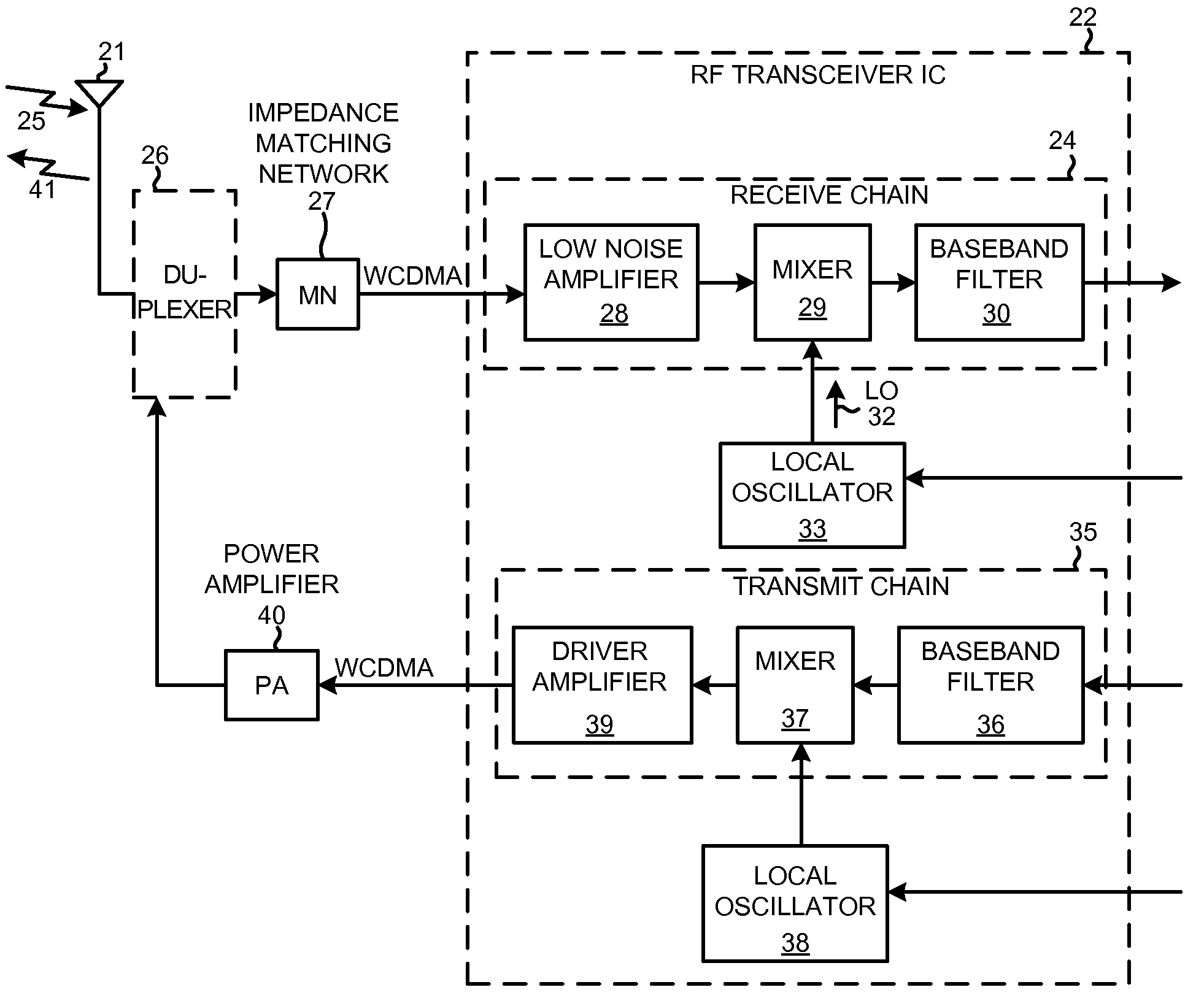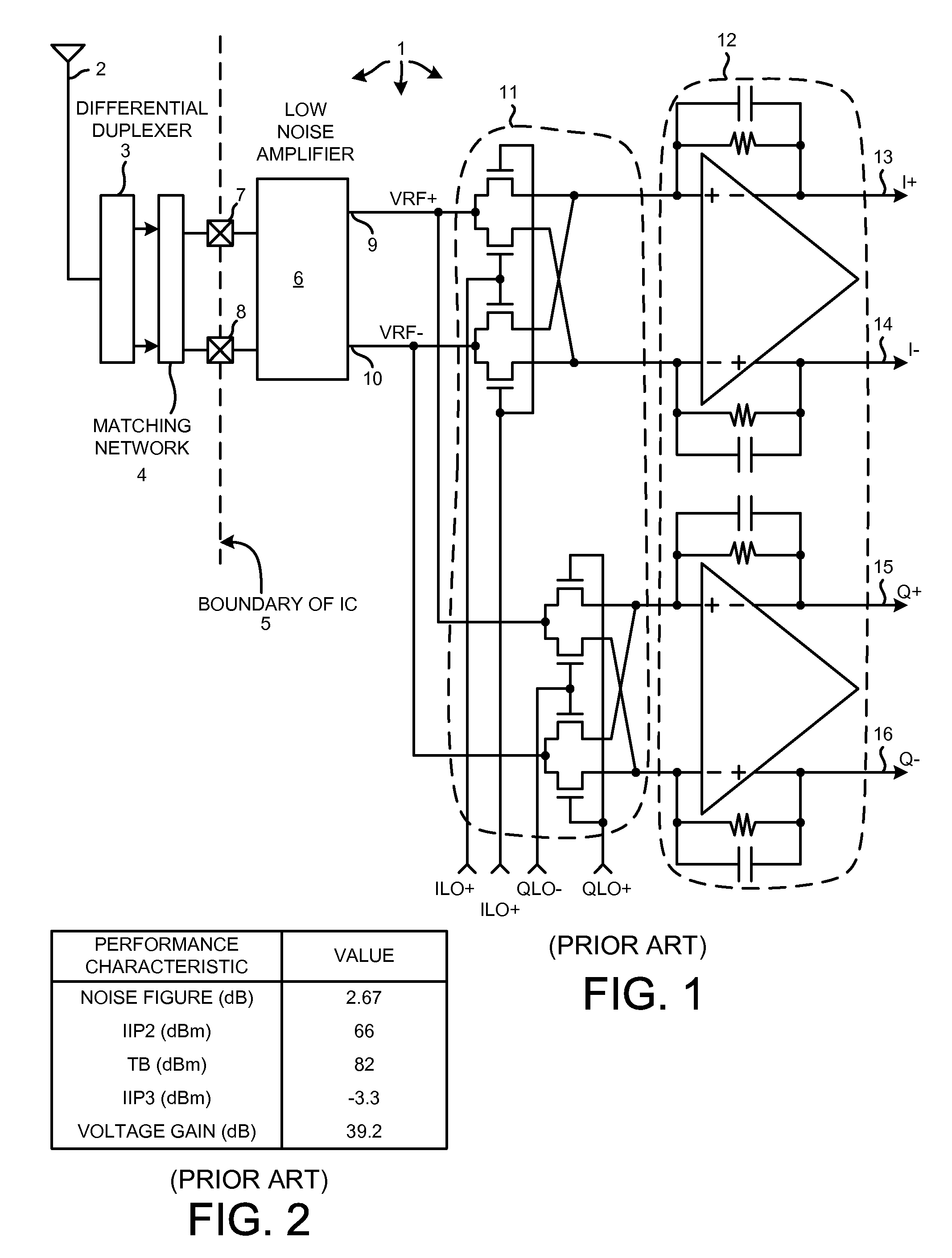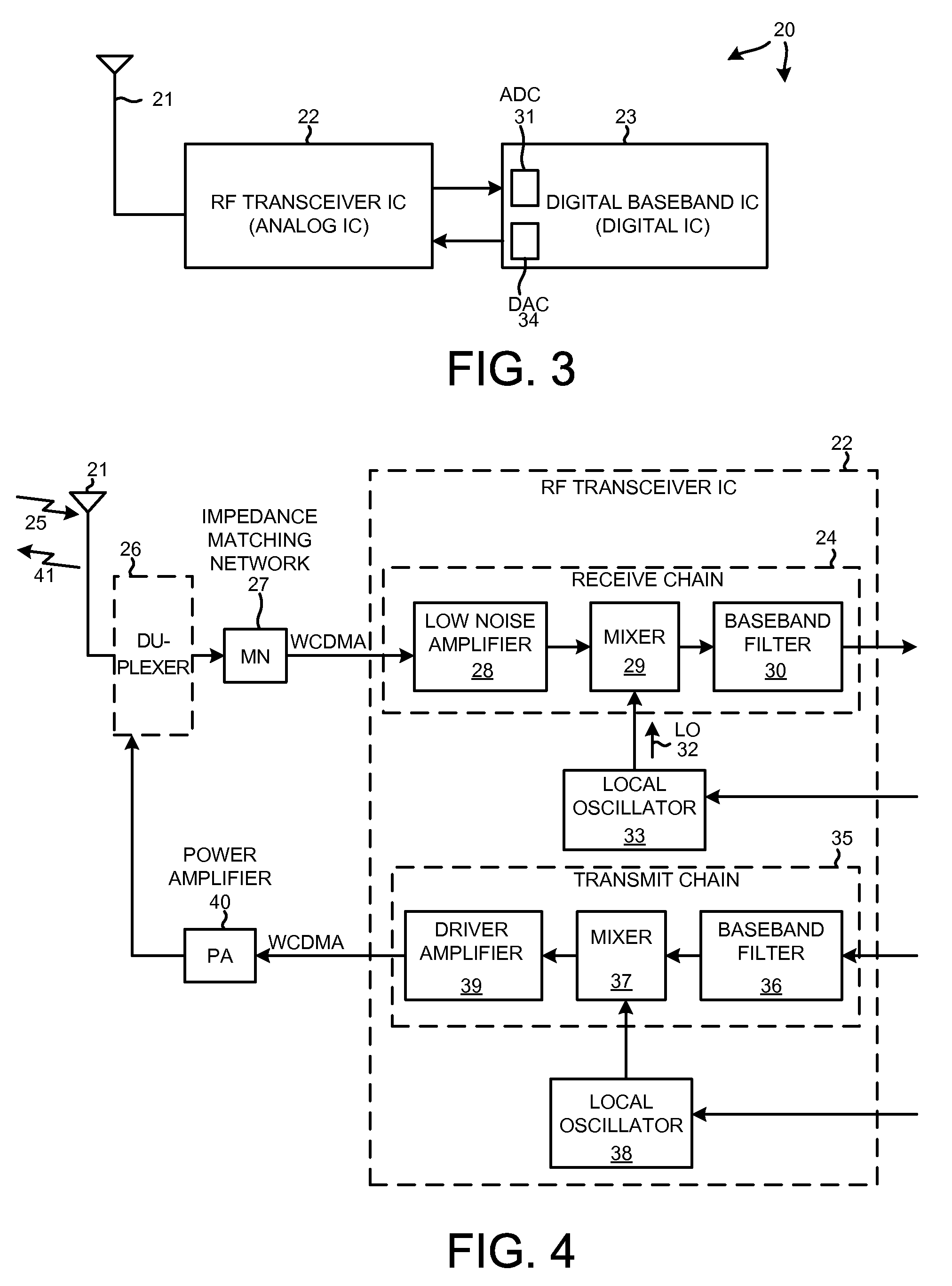Degenerated passive mixer in saw-less receiver
- Summary
- Abstract
- Description
- Claims
- Application Information
AI Technical Summary
Benefits of technology
Problems solved by technology
Method used
Image
Examples
Embodiment Construction
[0023]FIG. 3 is a very simplified high-level block diagram of one particular type of mobile communication device 20 in accordance with one novel aspect. In this example, mobile communication device 20 is a cellular telephone that uses the WCDMA cellular telephone communication protocol. The cellular telephone includes (among several other parts not illustrated) an antenna 21 and two integrated circuits 22 and 23. Integrated circuit 23 is called a “digital baseband integrated circuit” or a “baseband processor integrated circuit”. Integrated circuit 22 is an RF transceiver integrated circuit. RF transceiver integrated circuit 22 is called a “transceiver” because it includes a transmitter as well as a receiver.
[0024]FIG. 4 is a more detailed block diagram of the RF transceiver integrated circuit 22 of FIG. 1. The receiver includes what is called a “receive chain”24 as well as a local oscillator 33. When the cellular telephone is receiving, a high frequency RF signal 25 is received on a...
PUM
 Login to View More
Login to View More Abstract
Description
Claims
Application Information
 Login to View More
Login to View More - R&D
- Intellectual Property
- Life Sciences
- Materials
- Tech Scout
- Unparalleled Data Quality
- Higher Quality Content
- 60% Fewer Hallucinations
Browse by: Latest US Patents, China's latest patents, Technical Efficacy Thesaurus, Application Domain, Technology Topic, Popular Technical Reports.
© 2025 PatSnap. All rights reserved.Legal|Privacy policy|Modern Slavery Act Transparency Statement|Sitemap|About US| Contact US: help@patsnap.com



